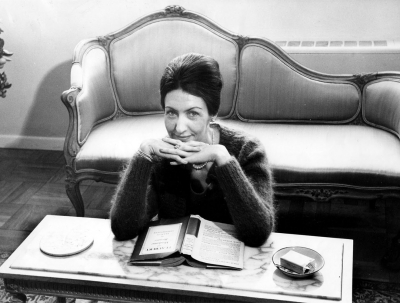Essays
To write about a biographer is to be aware of a presence, psychologically if not spectrally, sitting on your shoulder. This presence is not an angel, more like an imp, the minor demon that arouses bad deeds, or thoughts. In writing about a biographer we can feel not angelic inspiration, but the imp of doubt, saying: This is not good enough, I could do better.
... (read more)Address to the reader is one of the conventions of the modern essay form, going back to Montaigne, who includes a statement of address by way of an introduction to his collected writings. A question or series of questions refreshes the direct address along the way, accentuates the sense of voice, and vitalises the connection by supposing the reader as an interlocutor, someone whose responses may be silent, but are explicitly solicited. For the reader, this necessarily carries the risk of being co-opted into a pretence of dialogue: there is an assumed complicity in the line of thought, and on the principles guiding it.
... (read more)'The tyranny of text? Different readings at the Melbourne International Arts Festival' by John Rickard
Different readings at the Melbourne International Arts Festival
by John Rickard
In October, Brett Sheehy’s Melbourne International Arts Festival presented, with a certain relish, I suspect, two productions that represent opposite ends of a dramatic spectrum of current concern to those working in theatre. Heiner Goebbels’s S ...
Immediately after the mid-term elections in November, Barack Obama left for a long-planned G20 gathering in Seoul and for meetings with heads of government in the nation states of India, Indonesia, and Japan. Nothing remarkable, you think? Exactly what one expects a United States president to do? Not in America.
The right-wing blogosphere went berserk. Miche ...
'Alpha and Omega' Nathan Hollier on the establishment of Monash University Publishing
On 8 September 2010, in the foyer of the Robert Blackwood Hall at Monash University, beneath the beautiful ‘Alpha and Omega’ stained-glass window created by Leonard French and connoting humankind’s endless striving for achievement, Monash University ePress became Monash University Publishing. It was very appropriate that the press should be launched by B ...
''Tirra Lirra' and Beyond - Jessica Anderson’s truthful fictions' by Susan Sheridan
What a wonderful thing is the essay! What a hymn to the human mind and its vagaries and cogitations – to its humanness. All honour to Australian Book Review and the Cultural Fund of Copyright Agency Limited for celebrating it with the Calibre Prize – and, of course, to our prize-winning hymnists.
To celebrate the essay with this degree of fanfare shows a certain amount of chutzpah, I think – of ‘courage’ in the Sir Humphrey Appleby sense of the word. (‘A courageous decision, Minister.’)
... (read more)In October 2009, Shirley Hazzard spoke at the New York launch of the Macquarie PEN Anthology of Australian Literature. Hazzard read from People in Glass Houses, her early collection of satirical stories about the UN bureaucracy. Her appearance serves to remind Australian readers that Hazzard continues to occupy a defining, if somewhat attenuated, place within the expansive field of what Nicholas Jose described in 2008, on taking up the annual Harvard Chair of Australian Studies, as ‘writing that engage[s] us with the international arena from the Australian perspective’. Jose went on to cite Hazzard’s most recent novel, The Great Fire (2003), as part of ‘a range of material which Americans would not necessarily think of as Australian’.
... (read more)A year ago, I came to Australia prepared to spend the first half of my sabbatical leave completing a book on John Keats. Never having been to Australia, I was eager to spend some time here: five months in all. When I participated in the 2008 Mildura Writers Festival, it became clear to me that something both delightful and extraordinary was at work. There was a fine group of writers, including Les Murray, David Malouf, Alice Pung, Alex Miller, Sarah Day, and Anthony Lawrence. But what made the festival remarkable was the combination of conviviality and serious talk about literature and ideas that surpassed anything in my previous experience, which included far more such events than I could begin to count.
... (read more)About ten years ago I was interviewed on Irish radio on a matter entirely unconnected with writing. The first question the interviewer asked me was, ‘Is that yourself, Elisabeth?’ This ungrammatical question struck me as both hilarious and pertinent. I don’t remember much about the interview except that leading question.
‘Is that yourself?’ In 1959 ...



